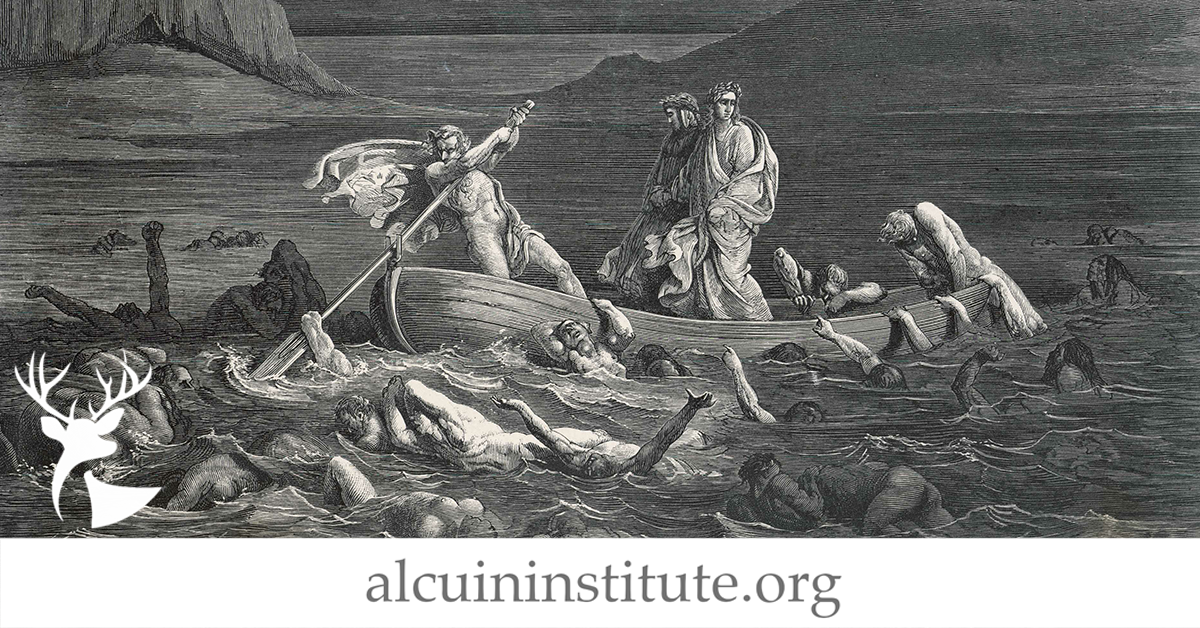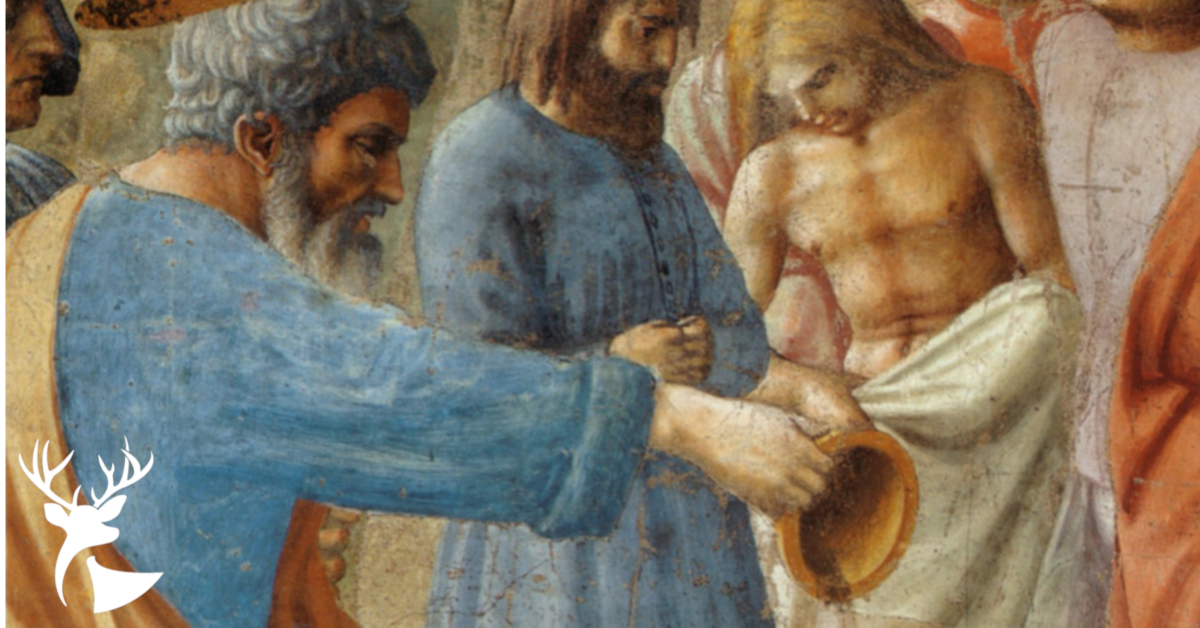
On Hell, Lying & the Purpose of Speech
By Dcn. Harrison Garlick
March 7, 2022
Given February 27, 2022, the 8th Sunday in Ordinary Time (Year C), at the Parish of Christ the King, Tulsa, Oklahoma
← Return to HomiliesStay Connected!

On Hell, Lying & the Purpose of Speech
By Dcn. Harrison Garlick
March 7, 2022
Given February 27, 2022, the 8th Sunday in Ordinary Time (Year C), at the Parish of Christ the King, Tulsa, Oklahoma
✠ In the name of the Father and of the Son and of the Holy Spirit ✠
Having journeyed through most of hell, Dante the Pilgrim and his guide, the poet Virgil, arrive at the Eighth Circle. In Dante’s Inferno, hell is presented as nine concentric circles spiraling into the earth—with each consecutive circle representing a greater sin and thus a worse punishment. As such, those near the top of the Inferno suffer lighter punishments for less serious sins, while those in the depths of hell suffer the most for the most egregious crimes against God and neighbor.
Having already traversed the first seven circles, Dante has seen souls punished for sins such as lust, gluttony, wrath, acedia, and heresy. He observed that tyrants—those who brought untold suffering to mankind—were punished for violence against their neighbor by being boiled in a river of blood.
Having just witnessed such a brutal punishment for tyrants, Dante leaves those who engaged in violence and enters the Eighth Circle. Expecting to see a sin worse than the circle before, Dante sees those souls who engaged in pandering, seduction, and flattery. The reader is left perplexed as to how Dante the Poet can think flattery and other types of fraud are worse sins than being violent. Virgil, his guide, tells him that the souls in the Eighth Circle are guilty of fraud.
Dante the Poet does not present the Inferno as an actual mapping of hell but rather a mapping of our souls. It is a story of virtue and vice and what makes men and women choose either good or evil. What, then, is Dante trying to teach us about the nature of evil by placing a sin such as flattery, a species of fraud, in a lower section of hell than violence?
First, we must understand that truth is the conformity of the mind to reality. When we say something is true, we mean this represents authentic existence, a realism, and the understanding of the mind corresponds to actuality. As Catholics, we hold to the teachings of tradition and of Scripture that the world is knowable. St. Paul teaches in the opening of his letter to the Romans that we can come to understand the reality around us and determine what is good and what is evil—and we are culpable or responsible to live in accordance with those determinations.
Second, the purpose of speech is to convey truth. If truth is the conformity of the mind to reality, then our speech has the purpose of sharing truth with one another. Our speech should always help our neighbor come to understand the truth—whether it is in person, at a dinner table, or on social media.
Thus, we see that a lie is contrary to the very purpose of speech. It divorces the mind from reality. When we lie to our neighbor, we impede their intellect from knowing what is true. Lying stops them from being able to understand what is good and what is evil and how to live accordingly. It decouples the mind from reality and always bears evil fruit.
Yet, does this really answer the question presented by Dante? Lying is evil, yes, but why does Dante think it is so evil that even the sin of flattery, a species of fraud, would be punished amongst the worse sections of hell?
Let us recall that Jesus Christ is the Eternal Word. St. John, in the opening of his Gospel, tells us: “All things were made by him: and without him was made nothing that was made” (Jn. 1:3). In the creation of the world, we see God the Father speaking creation into existence—it is the Word, the Second Person of the Trinity, who gives structure to reality itself. God says, “Let there be light” and light becomes real. Similar to how a word gives form and meaning to sound, so too does Christ the Eternal Word give structure to reality. When we speak a word, we attempt to convey the truth about reality; yet, when God the Father speaks the Eternal Word, it conveys reality itself.
This is why the Scriptures tell us that Christ is Truth. Not that he knows the truth. But rather He is the Truth. Because if truth is the conformity of the mind to reality, and Christ is the Word that structured reality, then to come to know Christ is to know the truth of all things. In coming to know Jesus Christ, our intellects conform not simply to the truth of reality but to that which is more real than reality itself, the Author of reality.
Thus, returning to Dante’s catechesis on lying, we see that to speak a lie is contrary to the very nature of who Jesus Christ is—when we speak a lie to our neighbor, we divorce their mind from reality—the very reality of which Christ is the author. We separate our brothers and sisters from Jesus Christ in every lie we tell. Thus, Dante shows us that while it is evil to destroy the body, it is much more evil to destroy someone’s mind with a lie. When we lie, we act contrary to the very Author of reality and to the purpose of speech itself. And from those lies, from that disconnect of reality, will come a host of other sins—including violence.
Recall the words of today’s Holy Gospel: “A good person out of the store of goodness in his heart produces good, but an evil person out of a store of evil produces evil; for from the fullness of the heart the mouth speaks” (Lk. 6:45).
✠ In the name of the Father and of the Son and of the Holy Spirit ✠
More Reading

Dcn. Harrison Garlick serves as a Great Books Tutor for the Alcuin Institute, and is the Chancellor of the Diocese of Tulsa.











